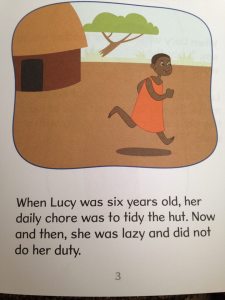The following post was written by blogger Mary Turck, former editor of the Twin Cities Daily Planet. Mary has delved into another key aspect of the spiraling Reading Horizons’ “issue” by tackling the claim that “research” proves the company’s products are superior.
Read her post here, and then go check out her blog:
Reading Horizons “proves” that Reading Horizons works (and I have a bridge in Brooklyn to sell you)
(The following content was written by Mary Turck)
The million dollar boondoggle that is Minneapolis Public Schools contract with Utah-based Reading Horizons continues. Now MPS wants Reading Horizons to rewrite its offensive and racist “Little Books.” MPS insists that “research shows this program has been successful in improving student outcomes around the country, including outcomes in diverse districts like ours.” Where is the research that MPS relied on? Does it exist? And if it doesn’t, what is explanation for a $1.2 million contract?
Sarah Lahm started telling the Reading Horizons story in August: A corporate contractor got more than a million dollars from Minneapolis Public Schools and delivered offensive teacher training and racist books. Her exposé on Bright Lights, Small City has been picked up nationwide, including a September 11 article in the Washington Post.
Sarah Lahm quotes MPS Communications Director Gale Piewacki as explaining that a team including dozens of teachers chose Reading Horizons because they are “known for their accomplishments in literacy.” Reading Horizons itself claims:
All MPS studenst will demonstrate higher levels of reading skill in grades K-3. Achievement gaps between white students and students of color will narrow across all grades. MCA reading scores in grades 3-10 will increase over time, presuming implementation of the Reading Horizons program with fidelity.
Following Sarah Lahm’s excellent coverage of the Reading Horizons scandal, I kept coming up with a question she also raised: Where is the research to back up the claim that Reading Horizons can raise all student achievement and drastically reduce the achievement gaps?
Using both academic databases and Google’s search engine, I came up with two academic papers that considered Reading Horizons in Missouri and a bunch of “research” that came from Reading Horizons. The Reading Horizons page does not identify independent, outside research. If such research exists, why isn’t it identified?
One of the two academic papers considers the achievement of ten students, three of whom used Reading Horizons — and concludes that Reading Horizons “could in fact help,” but recommends further study. The other, a doctoral dissertation that has a more credible design, focuses on eighth graders and finds “mixed” results.
The “research” showing success for Reading Horizons came from Reading Horizons itself — which collected and reported the data on its own performance in seven schools, using different measures for each school. Most of the seven schools were in small towns, with only one in a large city. The number of students and the length of time they used the program varied from five students using the program for five years to 1,748 students using the program for four months. Only one school was specifically identified as “ethnically diverse,” which probably means that the others were not.
The “research report” on elementary schools using Reading Horizons did not identify actual locations or dates of use. Here’s a summary of the elementary schools and students featured in the Reading Horizons “research:”
Iron Springs – school in a city of 27,500 people
Using Reading Horizons: 365 students
39.2 percent free or reduced lunchSeattle Hill – school in a city of 72,307 people
Using Reading Horizons: “unknown” number of K-2 students
12 percent free or reduced lunchHale Elementary School in a city of 2.78 million people
“ethnically diverse”
Using Reading Horizons: “unknown” number of first grade students in two classrooms for one year
66 percent free or reduced lunchCase Avenue Elementary School in a city of 13,909 people
“linguistically diverse”
Using Reading Horizons: 5 students for five years
46 percent free or reduced lunchPrinceton School District in a city of 1,202 people
Using Reading Horizons: 5 special education students for one year
49 percent free or reduced lunchHuntington Elementary School in a city of 2,150 people
Using Reading Horizons: 21 students for three months and 42 students for two years
51 percent free or reduced lunchWebster Schools in a city of 13,523 people
Using Reading Horizons: 10 or 12 schools with 1,748 students for four months
50 percent free or reduced lunch
By way of comparison, here are some numbers describing Minneapolis Public Schools, from the district website:
- Minneapolis Public School District has 35,356 students
- 65 percent qualify for free or reduced lunch
- 37 percent are African-American, 33 percent White American, 19 percent Hispanic American, 7 percent Asian American, 4 percent American Indian, 0.1 percent Pacific Islander
- 24 or 33 percent of students are English Language Learners (both numbers appear on the page)
MPS has stumbled from program to program, changing rules and curriculum and tests repeatedly. The Reading Horizons fiasco, with the racist, sexist, historically inaccurate books provided by the company, is the latest stumble, and it’s a giant one. Now the district insists that it must continue the $1.2 million contract because of Reading Horizons’ record of success. What is that record? Where is the research that they claim to rely on? And if that research doesn’t exist, what is the explanation for entering into that contract in the first place?



